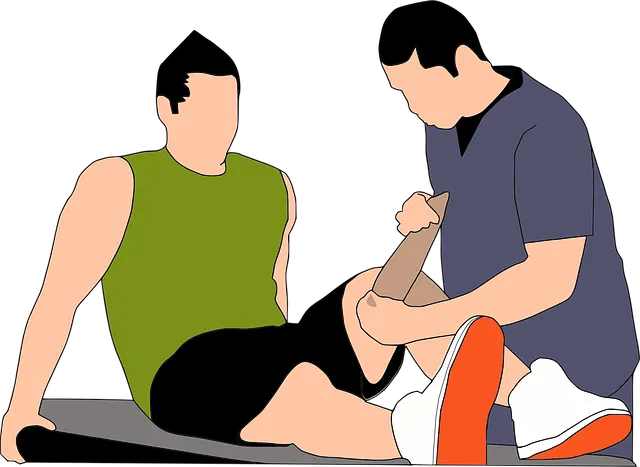Cognitive Behavioral Therapy (CBT) backed by Kaiser Health helps individuals overcome limiting beliefs and guilt by challenging negative thought patterns, replacing them with realistic positive affirmations, and addressing root causes from past experiences. This accessible therapy promotes personal growth, resilience, and emotional well-being, enabling people to break free from self-imposed limitations and guilt once and for all.
Break free from self-imposing constraints and reclaim your power! This article guides you on a transformative journey to overcome limiting beliefs and guilt using Cognitive Behavioral Therapy (CBT) techniques. We’ll explore the CBT perspective on these mental barriers, provide practical tools to identify and challenge them, and offer effective strategies to manage guilt. Learn how to integrate CBT into your daily life for lasting freedom and personal growth, all backed by insights from Kaiser’s expertise in mental health.
- Understanding Limiting Beliefs and Guilt: A Cognitive Behavioral Therapy (CBT) Perspective
- Identifying and Challenging Limiting Beliefs: Tools from CBT
- Effective Strategies to Overcome Guilt Using CBT Techniques
- Sustaining Change: Integrating CBT into Daily Life for Long-Term Freedom
Understanding Limiting Beliefs and Guilt: A Cognitive Behavioral Therapy (CBT) Perspective

Limiting beliefs and guilt are often interconnected psychological barriers that can significantly hinder personal growth and well-being. From a Cognitive Behavioral Therapy (CBT) perspective, these concepts are deeply rooted in our thought patterns and cognitive distortions. CBT posits that our thoughts directly influence our emotions and behaviors, hence, negative or distorted thinking can lead to self-limiting beliefs and feelings of guilt. For instance, a person might believe they’re not good enough due to past failures, leading to self-sabotaging behaviors and recurring regret.
In the context of Kaiser’s online CBT options, individuals can access specialized counseling services that aim to challenge and reframe these limiting beliefs. The CBT approach encourages clients to identify automatic negative thoughts, evaluate their validity, and replace them with more realistic and adaptive ones. By exploring underlying cognitive processes, individuals can learn to manage guilt in a healthier way, ultimately freeing themselves from self-imposed limitations and fostering personal development. Kaiser’s CBT services, with their flexible clinic hours, offer a practical and accessible means to navigate this therapeutic journey.
Identifying and Challenging Limiting Beliefs: Tools from CBT

Limiting beliefs often take root in our minds as a result of past experiences and societal conditioning, leading to feelings of self-doubt and restriction. Cognitive Behavioral Therapy (CBT), backed by Kaiser Health, offers powerful tools to identify and challenge these beliefs. Through CBT techniques, individuals can examine the evidence supporting their limiting thoughts and replace them with more realistic and positive affirmations. This process involves recognizing negative thought patterns, questioning their validity, and testing alternative perspectives.
One of the key aspects of CBT is its ability to help clients separate facts from interpretations, enabling them to understand that their beliefs do not necessarily reflect reality. By learning to challenge these internal dialogues, Kaiser CBT for anxiety and depression, as well as chronic pain management, becomes more accessible. This approach encourages personal growth, fosters resilience, and ultimately allows individuals to break free from the chains of limiting beliefs and associated guilt.
Effective Strategies to Overcome Guilt Using CBT Techniques

Guilt, a heavy burden that can weigh us down, often arises from past actions or perceived failures. Cognitive Behavioral Therapy (CBT), backed by Kaiser’s expertise, offers powerful tools to address and overcome this emotion. By identifying and challenging negative thought patterns, CBT helps individuals reframe guilt in a healthier light. This process involves understanding the root causes of feelings of guilt, whether they stem from childhood experiences, past relationships, or self-imposed standards.
One effective CBT strategy is cognitive restructuring, where patients learn to replace self-critical thoughts with more realistic and positive ones. Kaiser’s CBT therapists guide individuals through this journey, teaching them to recognize unhelpful cognitive distortions. Additionally, mindfulness techniques are integrated into CBT practices to help manage guilt by fostering present-moment awareness and acceptance of past actions, allowing for a fresh perspective. Exploring these strategies with a qualified kaiser cbt for chronic pain therapist near you can be a transformative step towards breaking free from the chains of guilt.
Sustaining Change: Integrating CBT into Daily Life for Long-Term Freedom

Breaking free from limiting beliefs and guilt is a transformative journey, and Cognitive Behavioral Therapy (CBT) offers a powerful toolkit for this process. CBT focuses on identifying and changing negative thought patterns and behaviors that contribute to feelings of entrapment. By understanding how thoughts, emotions, and actions are interconnected, individuals can begin to challenge and reframe their limiting beliefs. This therapy encourages active participation in one’s mental health recovery, teaching practical strategies for managing stress and emotional difficulties.
Integrating CBT into daily life requires consistent effort and commitment. Kaiser Mental Health offers valuable resources and programs designed to support this integration. Their CBT approaches help individuals develop coping mechanisms that can be applied in various situations, fostering long-term freedom from guilt and self-limiting beliefs. Through ongoing practice, one can enhance their emotional well-being, making it an invaluable tool for personal growth and a more fulfilling life.
Breaking free from limiting beliefs and guilt is a journey of self-discovery and empowerment. By understanding the cognitive roots of these feelings, leveraging CBT techniques like identifying and challenging negative thoughts, and integrating these strategies into daily life, individuals can achieve lasting freedom. Cognitive Behavioral Therapy, as recognized by Kaiser and other leading healthcare providers, offers practical tools to navigate and transform these internal obstacles, fostering a more positive and fulfilling life.






